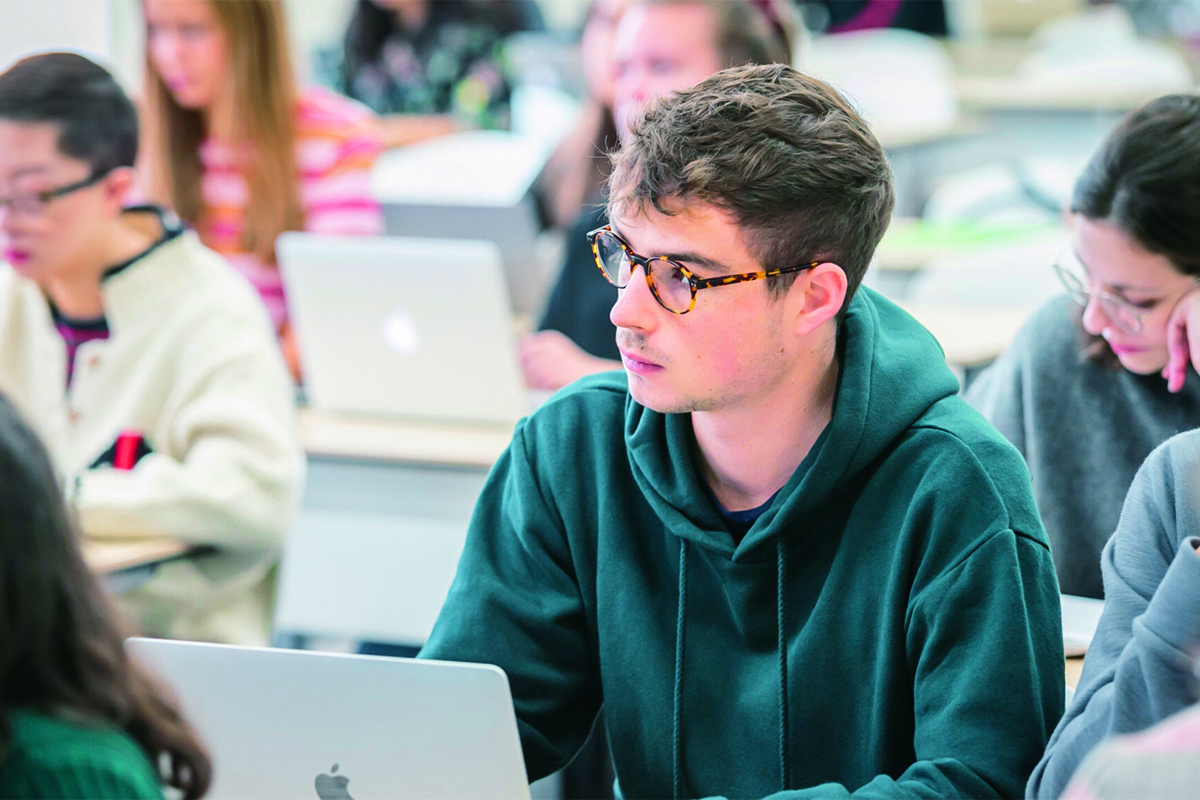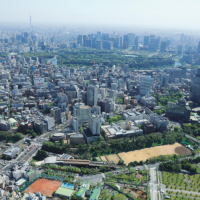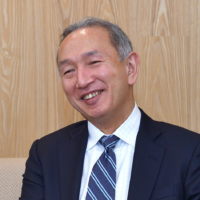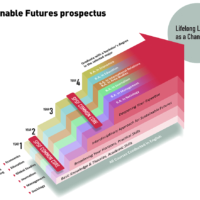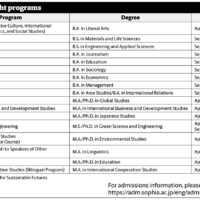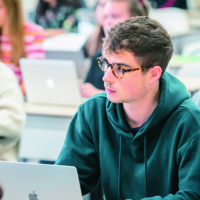Sophia University, the first Jesuit and oldest Catholic university in Japan, is celebrating its 110th anniversary this year. “Amid the dynamically shifting global landscape, we are questioning the role we should play in Japanese society and how we can serve the international community,” said university President Yoshiaki Terumichi.
He feels the need to create an environment where students can gain insight into societal change and develop an ability to make one’s point in diversified surroundings.
“To be able to respond to changes, one needs to have multilateral viewpoints and gain foresight into the future. In addition, the ability to recognize the qualities of issues and how they relate to each other from both global and local perspectives is essential,” Terumichi said, emphasizing that one must go beyond just understanding where the issues lie in order to play a creative role in society.
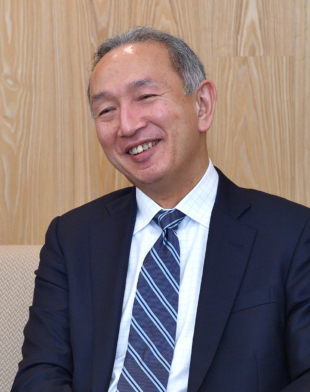
Issues can be diverse and complex when society itself is the same. “It is no longer a question of whether you should be part of the diversified society or not. Wherever you are, you are already living in one,” Terumichi said, explaining that having an area of expertise can increase credibility when trying to advocate one’s thoughts in such an environment. He stressed the importance of not only deepening current thinking on the universality of academic disciplines, but also turning this experience into wisdom and nurturing the ability to exercise and share it with other people. “Our job is not to make students understand this, but to constantly think and act to create an environment where students themselves can realize what they can gain at the university,” he said.
Acting on global issues
One of the efforts that Sophia University makes to provide such an environment is the establishment of research institutes that focus on various global issues. Among those are the Institute of Global Concern and the Sophia Institute for Human Security. Both focus on themes related to human dignity but take different approaches.
“While the former pursues how social justice can be realized from the standpoint of humanity and human rights, the latter tries to design policies and systems that can potentially solve problems that threaten human dignity in the dynamism of the economic society,” Terumichi said. This embodies Sophia’s strength of having resources to offer opportunities to explore one topic from various perspectives using different methods.
The Institute for Studies of the Global Environment is another Sophia-affiliated research organization that aims to contribute to the progress of humanity by doing research on environmental issues from interdisciplinary and multifaceted perspectives. The Sophia Island Sustainability Institute was originally one of the ISGE’s units, but it was made independent as part of the university’s response to “Laudato Si,” the second encyclical of Pope Francis published in May 2015. This document called for people to take action to address environmental degradation and global warming.
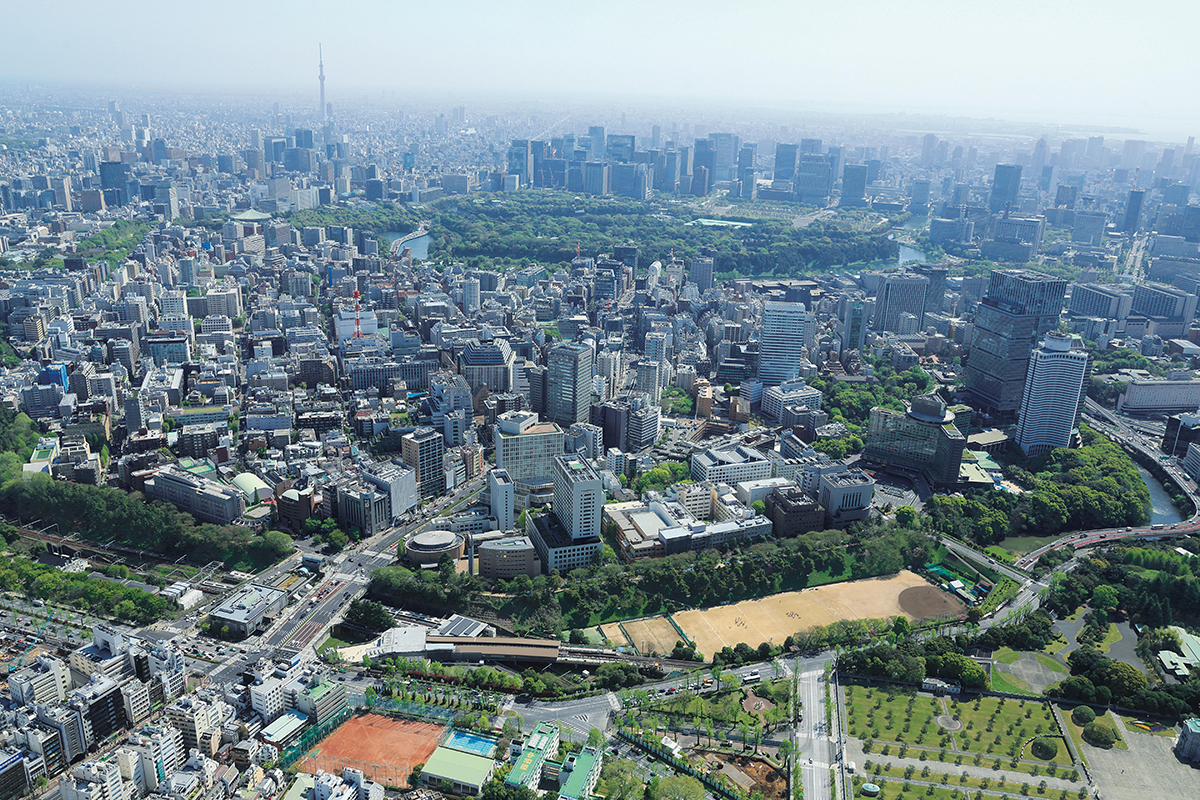
“In small island nations and regions, many different issues such as those related to environment, water, energy, economy, population and local industries tend to be intertwined with each other,” Terumichi said, explaining that how each area tries to deal with those challenges is worth studying and sharing with the rest of the world. The institute aims to become a hub for such studies by connecting research organizations and universities that share the same interests. “We are also inviting private enterprises to join our network to form a consortium that focuses on the topic of sustainability in island regions,” he added.
Due to the open nature of these institutes, students can have access to what is being studied and discussed there, and participate in many of the events held by those that host world-class researchers and policymakers in the relevant fields.
“It means a lot for students to be able to keep updating their knowledge this way because social issues are changing constantly with time,” Terumichi said.
For students to express their opinions, share insights with people from different backgrounds and enhance their creativity to find solutions to pressing issues the global community faces, it is important to explore a diverse environment and to be exposed to various perspectives. This is why Sophia offers many English-taught degree programs at both the undergraduate and graduate levels. In the 2022 fall semester, over 1,300 students from 74 countries and regions, including Japan, took such programs. Just before the pandemic, Sophia had students from 92 different countries.
English-taught programs
The Sophia Program for Sustainable Futures is one of the English-taught undergraduate degree courses established in 2020. It offers students in six departments a common platform for studying topics related to sustainability. The platform thus comprises the education, sociology, economics, global studies, journalism and management departments.
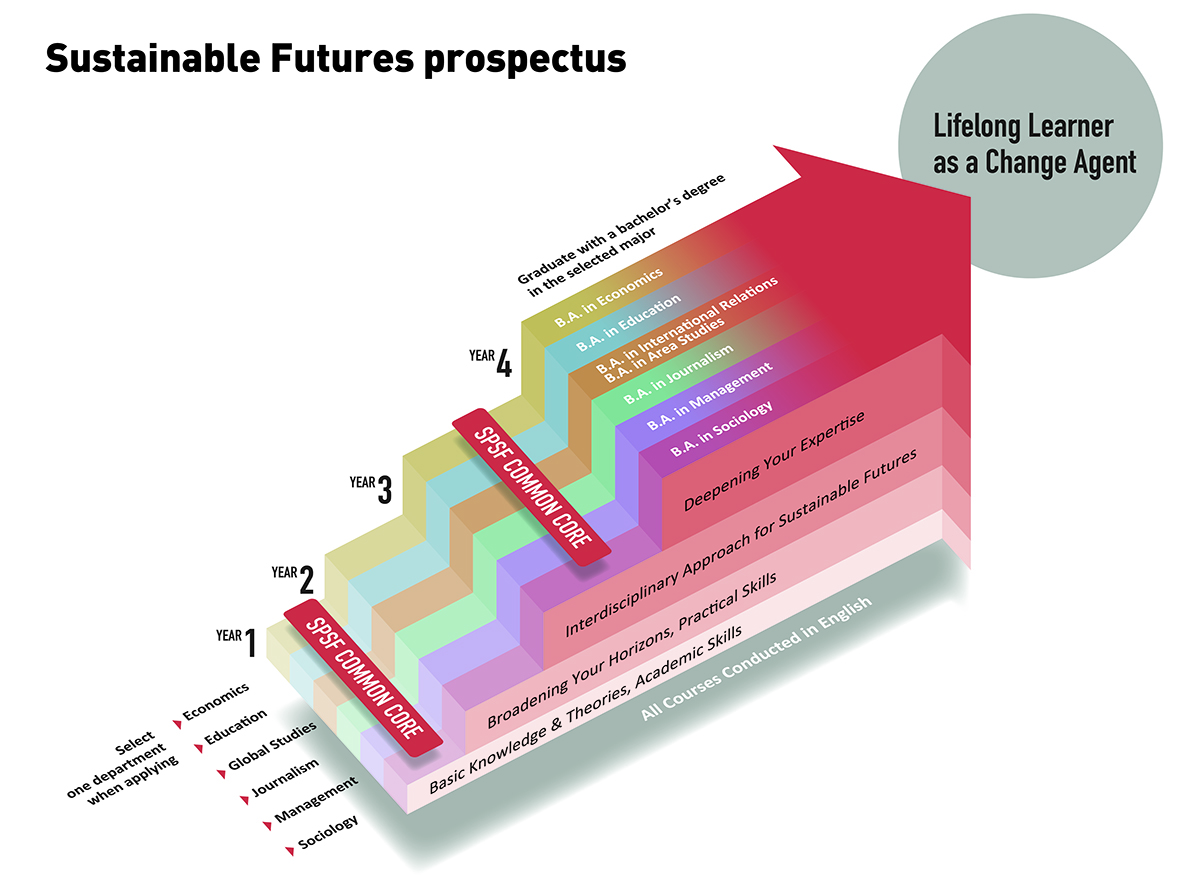
“There are no sustainability issues that can be solved by a single area of specialization or a single social organization,” Terumichi pointed out. “Experts in different fields looking at sustainability issues from various angles — this is necessary but not enough anymore. It is important for students to gain diverse and multifaceted perspectives, share what they learned with other students from various backgrounds and expertise, and stimulate their own areas of specialization,” he said.
Despite the partial COVID-19 restrictions on visas and entry to Japan last year, the SPSF had 130 students from 15 countries, including Japan, in the fall semester of 2022. “Through interactions with students from different countries, students will experience moments when they think, ‘I hadn’t thought of it that way!’ This is exactly why diversity is necessary and how diversity supports the growth of the society with new ideas and creativity,” Terumichi said.
Opposite side of self
Go to the opposite side of yourself — this is the message Terumichi shares with Sophia’s Japanese students whenever he has an opportunity to speak to them.
“When it comes to finding solutions for sustainability issues, people in advanced countries, including us, need to realize that we are a minority in the world,” he said. That is why he wants students to experience a life that is entirely different from what they consider normal, and Sophia’s campus, an exemplar of a global community, would be an ideal starting point. He also pointed out: “For students from abroad, Japan may be the ‘opposite’ or at least very different, from where they are from. Japan may have been successful in some areas but has failed in others. The definition of success may also depend on perspectives. We should not be afraid of being open to different perspectives and encourage foreign students to learn from our society. That is the role we have as a Japanese university.”
Terumichi said Sophia will continue to make efforts to be open to the world and serve as a base for intellectual and educational exchange. The university aims to have both researchers and students come and go actively to and from universities, including 400 schools in 83 countries Sophia has built partnerships with plus international organizations, to make higher intellectual achievements and demonstrate wisdom in the international community.
Dedicated platform for global study
At Sophia University, about one in 11 students and one in six faculty members are foreign nationals. One of the reasons for this is the variety of undergraduate and postgraduate courses taught in English. Many of these, especially those at the postgraduate level, involve a small number of students, thus ensuring close student-faculty interaction, one of the charms of the university.
The Sophia Program for Sustainable Futures, for example, serves as a platform for learning supported by six departments: education, sociology, economics, global studies, journalism and management. Students from these departments can take both discipline-based and interdisciplinary classes in English to enhance their expertise and develop broad and diverse perspectives at the same time.
In addition to the offerings of the SPSF, Sophia has other faculties, programs and courses available in English as outlined below.
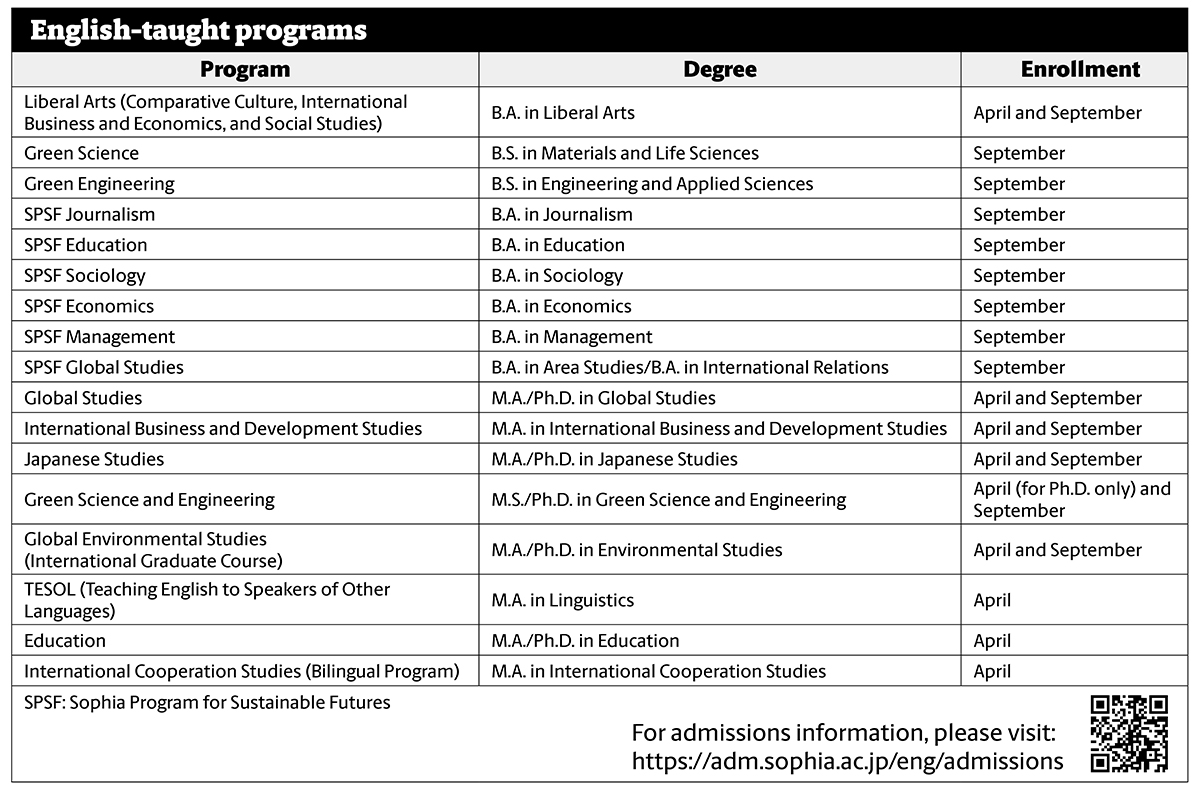
Nine undergraduate programs are offered across six faculties. The Faculty of Liberal Arts offers majors in comparative culture, international business and economics, and social studies, as well as various courses including public speaking, critical thinking and composition, to equip students with practical skills in English through a diverse environment of multinational professors and students.
In the Faculty of Science and Technology, the two English-based degree programs offered are in green science and green engineering.
The Green Science program, offered by the Department of Materials and Life Sciences, focuses on acquiring the fundamentals of chemistry and biology and learning how this knowledge can be applied to overcome environmental issues.
The Green Engineering program, offered by the Department of Engineering and Applied Sciences, is designed to help students acquire the electrical and mechanical engineering and physics skills needed to develop energy-related technologies applicable to energy conservation, efficient power generation and distribution, and power transmission.
The Green Science and Engineering program offers master’s and doctorate programs in English. The focus is on environmental and sustainability-related studies that require cross-disciplinary approaches. This program utilizes faculty members from the mechanical engineering, electrical and electronics engineering, applied chemistry, chemistry, mathematics, physics, biological science and information science programs, aiming to provide students with teaching and research guidance from these eight disciplines.
The Global Environmental Studies program also offers advanced degrees in English. The curriculum combines social and natural sciences across a broad range of academic disciplines to help students take a holistic approach to exploring the roots of complex environmental problems. To facilitate this, the program collaborates with other faculties and departments, especially the Graduate School of Science and Technology and the Graduate School of Economics, as well as external institutions.
Additionally, the Graduate School of Global Studies offers master’s degrees in global studies, international business and development studies, and Japanese studies, and doctorates in global studies and Japanese studies.
The Global Studies program allows students to examine a wide range of issues, including democracy, human rights, race and ethnicity, religion, migration, environmental change, global histories, sexuality and gender from various disciplinary perspectives, such as anthropology, sociology, history, political science and social psychology. Meanwhile, the International Business and Development Studies program aims to nurture skills for handling development issues and achieving sustainable development from a business perspective, with a strong focus on Japan and Asia.
The Japanese Studies program is divided into two categories: arts and culture (art history, cultural studies and literature) and thought and society (history, religion, philosophy and anthropology). By taking courses from both categories, students can gain a balanced understanding of Japan and take an integrated approach to their areas of expertise.
TESOL (Teaching English to Speakers of Other Languages) is an English-taught master’s degree program, but many students continue on to the Ph.D. program in linguistics, which can be completed in Japanese. TESOL allows students to take English-taught courses both in and outside the program, and to write their master’s thesis in English.
The master’s and Ph.D. programs in education allow students to take English-taught courses both in and outside the program, and to write their master’s thesis or Ph.D. dissertation in English.
One unique master’s program at the university is International Cooperation Studies, which allows students to earn degrees by taking courses in English, Japanese, or a mixture of both.
As such, Sophia University’s efforts and commitment to keeping its doors open to the world and serving as a global platform of wisdom in a wide array of ways are the embodiment of Sophia’s founding philosophy, “Sophia — Bringing the World Together.”
This page is sponsored by Sophia University.
Sophia University
Address: 7-1 Kioi-cho, Chiyoda-ku, Tokyo 102-8554, Japan
Tel: +81-(0)3-3238-3179
E-mail: [email protected]
URL: https://www.sophia.ac.jp/eng/



